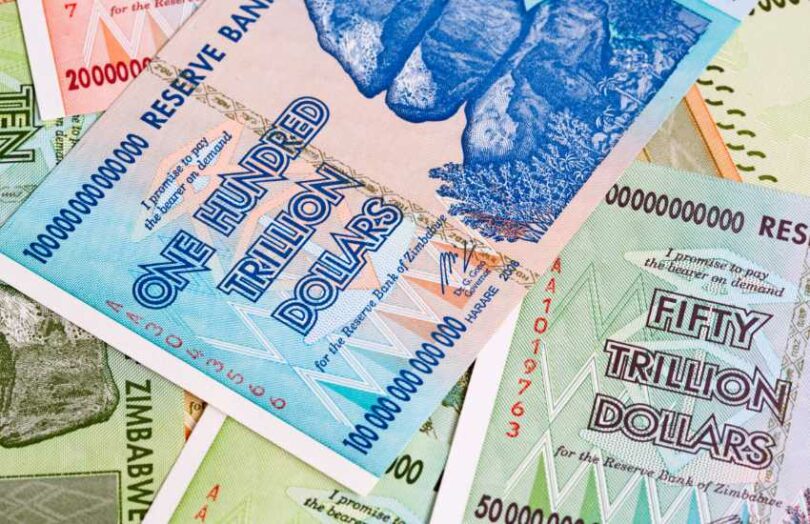The Reserve Bank of Zimbabwe (RBZ) is contemplating a gold-backed digital currency as part of its sustained efforts to stabilize the domestic currency. The Zimbabwean dollar is widely known for its volatility, so the move could offer an alternative investment avenue for citizens to maintain the value of their savings. Nonetheless, past efforts to peg the currency to other assets have often resulted in scandals that have slowly eroded people’s trust in the central bank.
Objective: store of value
The RBZ has long struggled to tame the depreciation of the Zimbabwean dollar. During the mid-2000s, monthly inflation peaked at 79.6 billion percent forcing the government to abandon printing the domestic currency entirely. Eventually, the country was able to ease inflation pressures thanks to the adoption of a combination of foreign currencies, with the US dollar and the South African rand as the main ones widely used. But the conversion to a new Zimbabwean dollar in 2019 marked the return of high inflation, which has since hovered at more than 100%.
Hence, the RBZ is now considering a gold-backed digital currency to provide a store of value function rather than a means of payment. The primary intention is to let Zimbabweans protect their savings and hedge against the country’s intractable exchange rate volatility with a central-bank-backed digital asset. RBZ Governor Dr. John Mangudya told local sources that the digital gold tokens would allow the government to address the high demand for foreign currency and offer poor citizens a way to maintain the value of their savings.
We want to “ensure that those with low amounts of local currency are able to purchase the gold units so that we leave no one and no place behind,” he said.
Central bank trust
However, the question is how much trust people have in the Central Bank. In 2018, the RBZ abandoned a peg to the US dollar. Many people had US dollars in the banking system, but their foreign currency was converted into local currency unilaterally, resulting in a massive loss of wealth. The reason for the conversion was the central bank was short of US dollars.
In 2019, the central bank introduced a USD-backed savings bond, hoping to get citizens to pay for them in US dollars as it was short again. However, the initiative struggled to get traction.
Zimbabweans have become financially literate as rates move so quickly that they must stay on top of current market developments to avoid risking their life savings. Cryptocurrencies could offer an alternative, but although they are not entirely banned, the RBZ introduced several restrictions in 2018, particularly on banks, to curb their widespread adoption.






